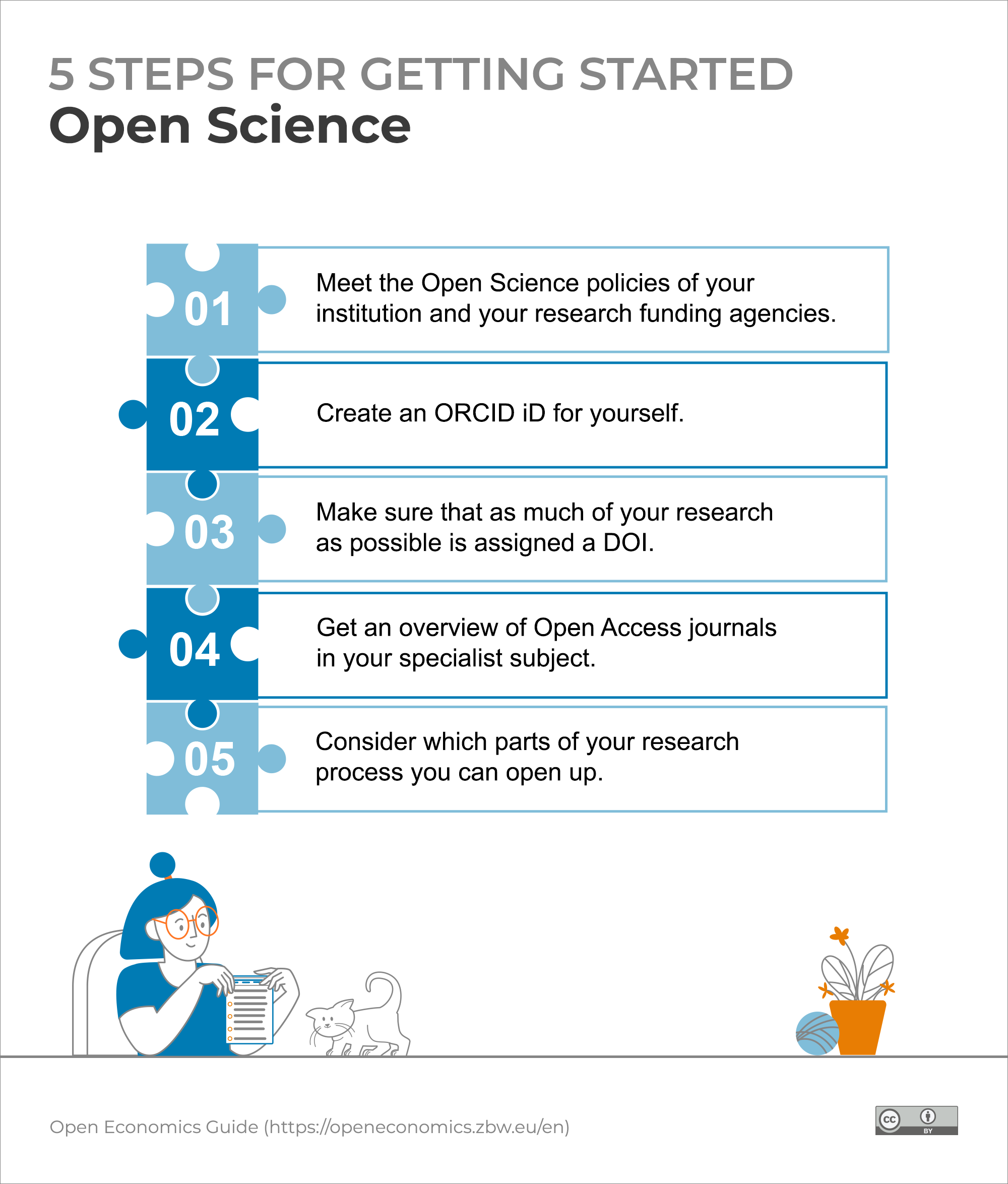Five Steps for Getting Started in Open Science
Start by taking small steps. Open Science doesn’t have to mean making a huge effort. If many researchers all take small steps, this will advance the researchers themselves and also science and society. And many practices and solutions can be carried out without a great deal of effort. You can therefore achieve a great deal with a minimum of input.
Five first steps for getting started in Open Science:
- Meet the Open Science policies of your institution and your research funding agencies. These may include policies for Open Access, Open Data, and for research data management.
- Create an ORCID iD for yourself. This will ensure the correct assignment and better findability of your research work and thus support your visibility (see also worksheet "Speed up your publishing process via ORCID ID" in the ZBW's Open Science Magazine).
- Make sure that as much of your research as possible is assigned a Digital Object Identifier (DOI), including your research data, for example. This will make them easier to find, cite, and re-use.
- Get an overview of Open Access journals in your specialist subject. The Directory of Open Access journals can be useful here. Publish in Open Access whenever possible.
- Consider which parts of your research process you can open up. Check out the six main areas of Open Science, start with the easiest part, and give it a try!

In the individual sections of Open Science in the Open Economics Guide, you will also find ideas for taking first steps such as practicing Open Access.
Do you want to go further? You can find more steps recommended for integrating Open Science in your research work on openscience.eu blog: Five ways to incorporate open science practices into your workflow .
The Open Science Researcher Checklist by the EU-funded project ORION also offers a starting point for Open Science.